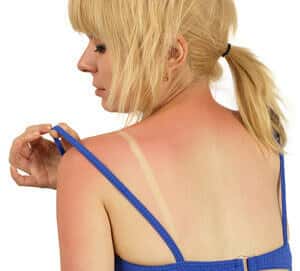
Dermatologists frequently remind us that applying sunscreen should be part of our daily routine, just like washing our hands or brushing our teeth. That’s the best way to protect the skin both from sunburn and from aging.
Redness or wrinkles are only the results we can see. Excess sun exposure puts us at risk for skin cancer, a hazard that may be invisible for years.
But what if you can’t find a suitable sunscreen? This reader is looking for one that doesn’t cause an uncomfortable rash.
Sunscreens That Cause Itches:
Q. I am allergic to all the sunscreens I’ve ever tried. They make me itch on my chest, forearms, face and hands.
How can I solve this problem and protect my skin better from the sun? I am 61 and have had this problem for 12 years. Thank you for any information you can send me.
A. In addition to the sun-blocking compounds in sunscreens, preservatives and fragrances in these products sometimes cause unpleasant skin reactions.
Try a Titanium- or Zinc-Based Sunscreen:
You may want to consider using a sunscreen with physical blocking agents such as titanium and zinc. These may be less likely to cause a reaction than sunscreens with chemical blockers such as oxybenzone, an ingredient that has hormone disrupting properties and may also trigger an allergic reaction.
In addition, try for a product that has minimal added fragrance or other compounds.
We are sending you our Guide to Skin Care and Treatment with more detailed information on favorite sunscreens, sunless tanners and photosensitivity. You may also want to check the Environmental Working Group’s website, updated every year, on the ingredients they judge to be hazardous in sunscreens.
Sun Protection from the Inside Out?
Don’t forget that staying out of the sun, wearing long sleeves or hiding under a beach umbrella (or a parasol) can all be effective ways of protecting the skin without smearing anything on it. You might also consider taking Polypodium leucotomos extract. This South American fern seems to provide modest but measurable protection from sunburn when it is taken orally (Journal of Clinical and Aesthetic Dermatology, Feb. 2015; International Journal of Dermatology, Mar. 2015).
There is also a potential for modest protection from eating a diet enriched with orange or red vegetables that offer high levels of carotenoids or lycopene (American Journal of Clinical Nutrition, Nov. 2012). We wrote about this interesting effect here. We discussed other antioxidants that can help protect the skin from ultraviolet radiation here.

